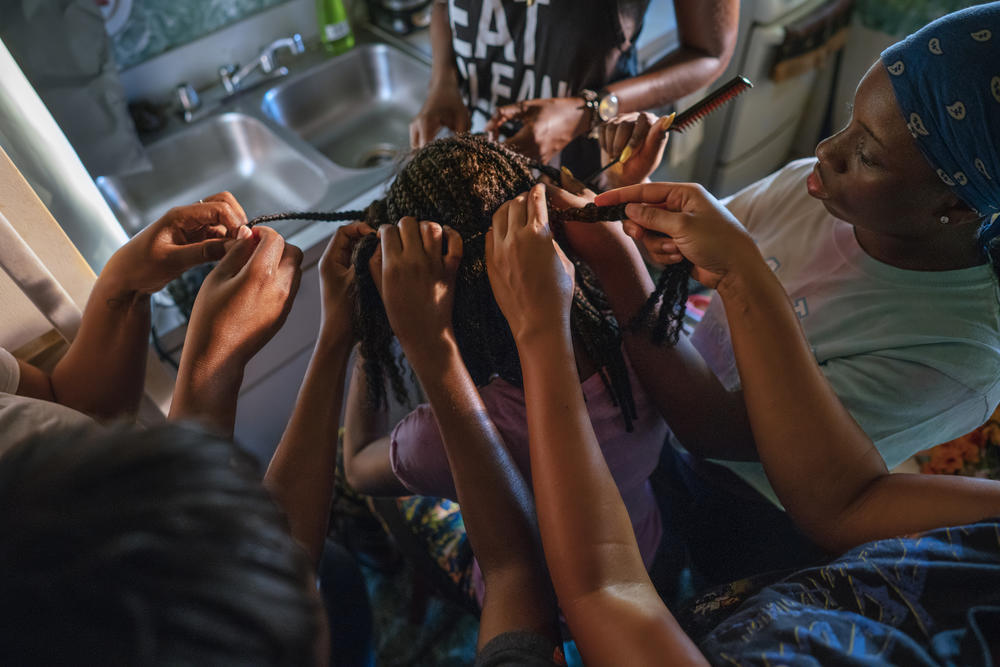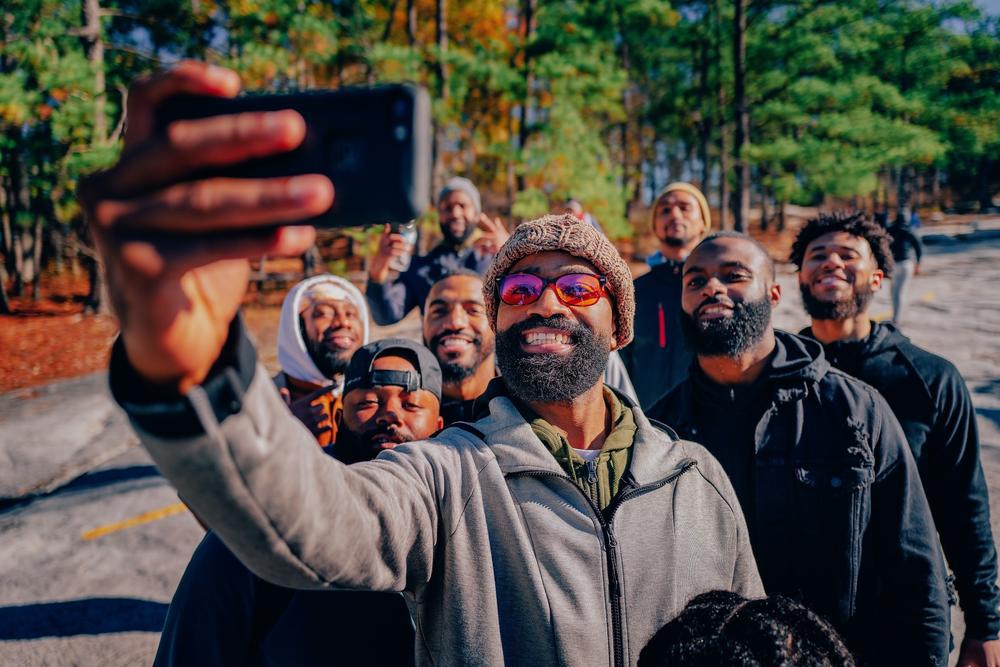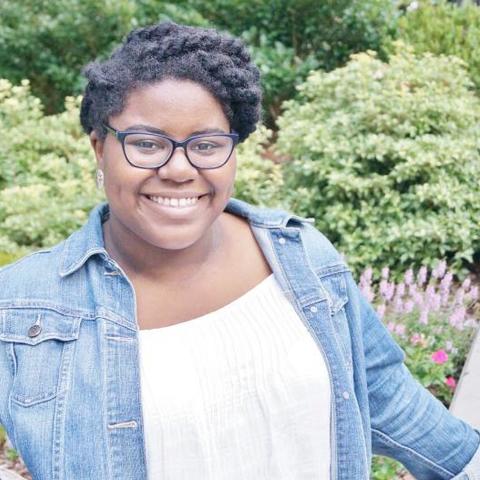
Caption
"On Second Thought" explored the dynamics between power, love and community when it comes to hair and beauty care. This photo, from the film "Liberty" by Faren Humes, illustrates community within beauty, and is currently on view at Atlanta's High Museum.
Credit: Photo by Alex Harris





